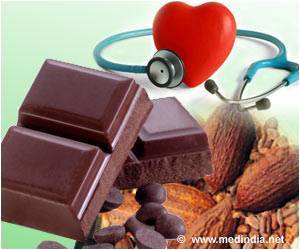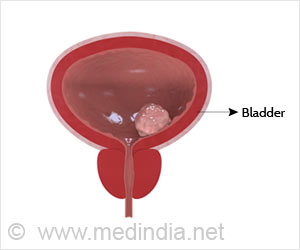In trials, cocoa flavanol supplement was found to reduce the risk of developing cardiovascular disease.
- A cocoa flavanol supplement can prevent the risk of developing heart disease
- Cocoa flavanol supplement can reduce cardiovascular events, including death from cardiovascular disease
- So, consume foods rich in flavanols to keep cardiovascular diseases at bay
“When we look at the totality of evidence for both the primary and secondary cardiovascular endpoints in COSMOS, we see promising signals that a cocoa flavanol supplement may reduce important cardiovascular events, including death from cardiovascular disease,” said Sesso. “These findings merit further investigation to better understand the effects of cocoa flavanols on cardiovascular health.”
“Previous studies have suggested health benefits of flavanols — compounds in several plant-based foods including cocoa, tea, grapes, and berries,” said Manson. “COSMOS was not a chocolate trial — rather, it’s a rigorous trial of a cocoa extract supplement that contains levels of cocoa flavanols that a person could never realistically consume from chocolate without adding excessive calories, fat, and sugar to their diet.”
Smaller, short-term trials have found cardiovascular benefits for cocoa flavanols on blood pressure and blood vessel dilation. COSMOS offered the first opportunity to study if a cocoa flavanol supplement might also lead to longer-term reductions in clinical cardiovascular events. Investigators also looked for reductions in risk of cancer. In addition, the trial was designed to test a common multivitamin in the prevention of cancer and cardiovascular disease.
The primary cardiovascular outcome for the cocoa flavanol intervention was a composite of total cardiovascular events, including heart attacks, stroke, coronary revascularization, cardiovascular death, carotid artery disease, peripheral artery surgery, and unstable angina.
First, those receiving the cocoa flavanol supplement had a significant 27 percent reduction in death from cardiovascular disease.
Third, a composite endpoint of major cardiovascular events (heart attacks, strokes, and cardiovascular deaths), although not a trial focus, was also significantly reduced. The authors note in their report that their promising results on cocoa flavanols and cardiovascular events warrant cautious interpretation and underscore the need for additional research.
A daily multivitamin had no significant effect on total or individual cardiovascular events. There were no safety concerns for either cocoa flavanols or a multivitamin.
COSMOS concluded after about 3.6 years, which was likely too short to detect whether the supplements could have affected cancer risk. Although a daily multivitamin improved levels of several nutritional biomarkers, it had no significant effect on total invasive cancer, the primary outcome for the multivitamin analyses.
Cocoa flavanols also had no significant effect on total invasive cancer. The authors note that continuing to follow COSMOS participants may help to clarify any longer-term effects on cancer and death. The investigators and collaborators are also leveraging COSMOS to study cognitive decline, falls, eye disease, and other aging-related outcomes that may be influenced by the supplements.
“Although our study suggests intriguing signals for cardiovascular protection with cocoa flavanols, any health benefits due to taking these supplements will need confirmation in a future trial,” said Manson. Adds Sesso: “Our message for consumers is to eat a healthy, balanced diet, rich in natural food sources of flavanols, and to stay tuned as we further evaluate other important health outcomes in COSMOS.”
Source-Eurekalert










